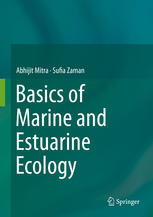

Most ebook files are in PDF format, so you can easily read them using various software such as Foxit Reader or directly on the Google Chrome browser.
Some ebook files are released by publishers in other formats such as .awz, .mobi, .epub, .fb2, etc. You may need to install specific software to read these formats on mobile/PC, such as Calibre.
Please read the tutorial at this link. https://ebooknice.com/page/post?id=faq
We offer FREE conversion to the popular formats you request; however, this may take some time. Therefore, right after payment, please email us, and we will try to provide the service as quickly as possible.
For some exceptional file formats or broken links (if any), please refrain from opening any disputes. Instead, email us first, and we will try to assist within a maximum of 6 hours.
EbookNice Team

Status:
Available0.0
0 reviewsThe book presents recent research on marine ecology in different parts of the world. It aims to shed light on relevant topics for budding marine ecologists.
The “blue soup” of Planet Earth, which comprises both biotic and abiotic components, is essential to keeping the wheel of civilization running. Four major ecosystem service categories have been identified within this context, namely provisioning services such as water, food, mangrove timber, honey, fish, wax, fuel wood, fodder and bioactive compounds from marine and estuarine flora and fauna; regulating services such as the regulation of climate, coastal erosion, coral bleaching and pollution; cultural services encompassing recreational (tourism), spiritual and other non-material benefits; and supporting services such as nutrient cycling and photosynthesis. These valuable services are obtained from various resources that must be conserved for the sake of humanity. This book presents data for each resource type, not just in the form of a simple description, but also through case studies that resulted from several research projects and pilot programs carried out in different parts of the world. Statistical tools were also used to critically analyze the influence of relevant hydrological parameters on the biotic community. Advanced research in marine and estuarine ecology is based on the use of sophisticated instruments, sampling precision, statistical tools, etc., which have also been highlighted in the book.